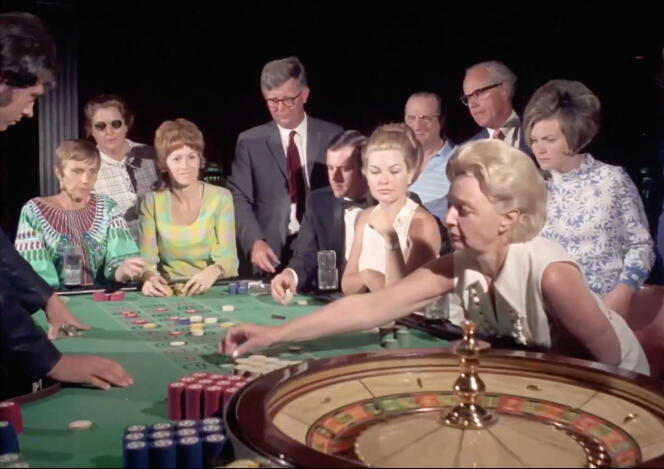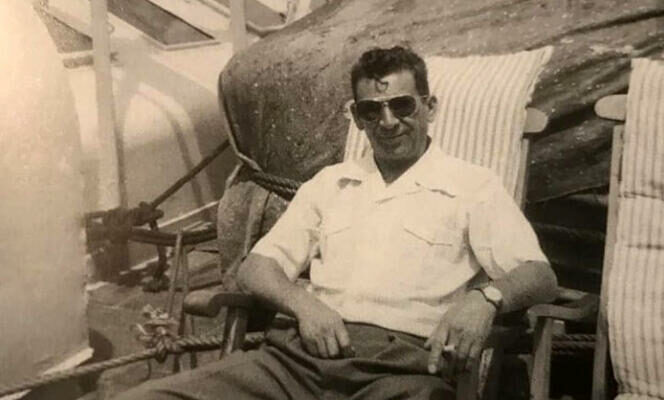ARTE.TV – ON DEMAND – DOCUMENTARY
Their names are Meyer Lansky, Michele Sindona, Du Yuesheng and Boris Birshtein. These men, dressed to the nines, manipulate figures as their associates handle revolvers. In the shadow of the mafia bosses, they are the “banksters” (contraction of “banker” and “gangster”), to whom criminal groups entrust the mission of making their capital prosper. They move from the shadows to the light throughout an edifying documentary in three parts that Arte devotes to the irresistible alliance between the underworld and international finance.
This history of mafias seen through the prism of account books begins in the United States, in the 1920s, at the time of Prohibition. The margin on a bottle of good Scotch whiskey was then comparable to that made today on cocaine. The saga spans a century of euphoria and scandals, until the latest “leaks” revealing the myriad of shell companies where dirty money flourishes.
Fascinating, the banksters are also fascinating for the mafia bosses themselves. The essential Lucky Luciano, one of the bosses of the Italian-American Mafia, does not hide his admiration for Meyer Lansky, his childhood friend so gifted in mathematics, who will become his right-hand man in charge of “business” – a wide range, the installation of slot machines in the speakeasy (from clandestine bars) to money transfers in tax havens. Between banking establishments with a respectable reputation and lawless criminal groups, a dizzying pas de deux is already beginning.
Poisoned with cyanide
To uncover this gray area, director Christophe Bouquet avoids clichés and spin, which often pollute the plethoric offering offered by video platforms under the keyword “mafia”. He favors didacticism, follows a chronology punctuated by the breaking points of global finance, which constitute so many opportunities for enrichment for the mafias.
In constant motion, between New York and Shanghai, Palermo and Havana, the three episodes decipher the most profitable financial arrangements, when secret bankers combine rationality and creativity to hide the illicit income of their clients.
Among them, the Sicilian Michele Sindona (1920-1986) occupies a special place. This former milk delivery man (sometimes cut off), graduated in law in Milan, has become the essential financier of Cosa Nostra, but also of the Vatican. He was one of the first to make full use of the legislation of Switzerland, Liechtenstein or certain Caribbean islands to transport capital around the world. In 1972, he went so far as to acquire an American bank, the Franklin National Bank, to manage his fortune. Two years later, the bank went bankrupt. His liquidator was assassinated in 1979. As for Sindona, he died in prison in 1986, after drinking coffee poisoned with cyanide.
Another of these tailor-made banks is headquartered in Karachi, Pakistan. The Bank of Credit and International Commerce (BCCI) presents itself as the “bank for the underprivileged”. It will become, under this humanitarian veneer, a large-scale recycling company. At the beginning of the 1980s, her clients included dictators and terrorist groups, but also the Colombian Pablo Escobar, the head of the Medellin cartel, who spread the white powder like blood in the streets of Miami.
Perilous infiltration
The revelations about the cartel’s income were made possible thanks to the perilous infiltration, for eighteen months, of an American customs agent with its managers. Under the name Bob Musella, the official gained the trust of the narcos, even Escobar’s closest accomplices. Until the experience ended during the celebration of his fake wedding, during which 85 of the guests were arrested, all linked to drug trafficking.

After the fall of the Berlin Wall, the gluttony of the criminal bankers took on another dimension. The pace of the documentary accelerates with that of the financial deregulation of the 1990s and the mass increase in drug trafficking. He recounts how the commodities market supported the rise of Russian organized crime, which will put Cyprus on the map as a favorite haven for dirty money. And how the Chinese triads, rooted in Canada, will know how to use the plasticized tokens from their casinos – which can be worth several million dollars each – to cross borders, from one gaming room to another, beyond any control.
A big casino where nothing is going well: this is how the world of finance now appears prey to banksters. The most recent investigations thus lead to avenues that are a priori unsuspected. Like when, in 2018, Danske Bank, Denmark’s leading bank, found itself at the heart of a scandal for having transported more than 200 billion euros of dirty money from Russia… It is on this worrying observation this criminal saga ends: access to financial institutions by mafia groups is no longer a feat today, but banality.
Mafias and banksdocumentary series by Christophe Bouquet and Mathieu Verboud (Fr., 2023, 3 × 60 min). On Arte.tv until May 25, 2024.
